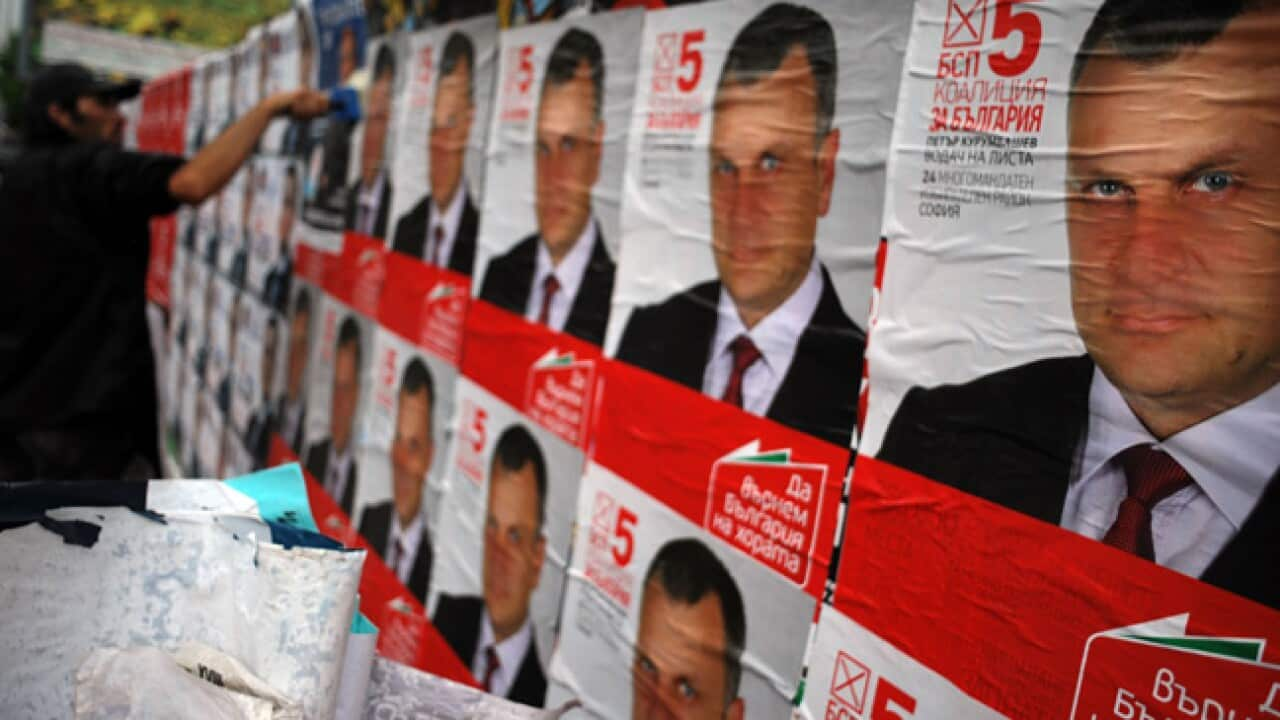Bulgarians have begun voting in a tight and tense snap general election marred by accusations of fraud and expected to result in political stalemate and fresh protests in the EU's poorest member.
Former bodyguard and ex-premier Boyko Borisov's conservative GERB party is expected to win the most votes, even though the biggest demonstrations in 16 years forced his government to resign only three months ago.
But pre-vote opinion polls give GERB just 29-35 percent of the vote, well short of a majority and nowhere near enough for a repeat of Borisov's previous minority government when his party was just four seats short of a being able to govern alone.
he last-minute opinion polls showed the socialist BSP party snapping at GERB's heels on 25-32 percent, with some surveys putting them neck-and-neck and even suggesting the BSP might pull off a surprise, if slim, victory.
Either way, this will leave either party the tough task of fishing for coalition partners in a severely fragmented parliament that might include up to five other parties.
"At least a three-party coalition will be needed to form a government," analyst Yuliy Pavlov from the Centre for Analysis and Marketing said.
The ultra-nationalist Ataka, which voted with Borisov's minority government but which has now turned against him, seems set to enter parliament again, with polls giving it between six and nine percent.
The only other party certain to clear the four-percent threshold to enter parliament is the Socialists' former coalition partner, the liberal Turkish minority MRF party, credited with between eight and 15 percent of the popular vote.
A potential kingmaker could be the new centrist formation DBG of ex-European commissioner Meglena Kuneva, polling at 3.0 to 6.5 percent, although it is unclear whom -- if anyone -- Kuneva might support.
WINTER OF DISCONTENT
The campaign has focused more on a wiretapping scandal than on the grinding poverty -- almost a quarter of the population lives below the poverty line -- that so angered Bulgarians over the winter.
Six people have died after setting themselves on fire in rprotest or despair
The failure by politicians to address ordinary Bulgarians' top concern has added to apathy among the country's 6.9 million voters, and to predictions that people will be out on the streets again before too long.
"I won't vote. The whole thing is so rotten. We've been disappointed by all of them already," Evelina Angelova, a 25-year-old mother-of-two who used to support GERB, told AFP.
Her husband is unemployed and the family survives on her monthly maternity allowance of 310 leva (158 euros, $205).
She fumed: "It's just absurd. People will take to the streets again after the elections. I fear that we're headed for civil war!"
Retired teacher Ivan Ivanov, 72, who survives on a pension of 272 leva, was more forgiving.
"It's true that GERB did not do much for the people from a social point of view but at least they kept financial stability at this time of crisis," he said.
"I'll back them, hoping they'll learn from their mistakes if they manage to form a government," he shrugged.
Post-election stalemate is also the last thing needed by the Bulgarian economy, which grew just 0.8 percent last year and where foreign direct investment has slumped.
"We are running the serious risk of seeing massive pessimism and despair turn into active aggression on the streets," political analyst Ognyan Minchev told the Presa daily in a recent interview.
Vote-buying and other election fraud concerns has also marred the campaign, prompting the Organisation for Security and Cooperation in Europe (OSCE) to dispatch its biggest monitoring mission to Bulgaria since 1990.
On Saturday prosecutors said they had seized 350,000 illegal ballot papers, prompting the head of the socialists, Sergey Stanishev, to accuse GERB is preparing for the "total falsification of the elections."
Five parties -- but not GERB -- have also commissioned an independent parallel vote count, prompting analysts to fear that Bulgaria might see its vote results challenged for the first time since 1990.
The over 11,700 polling stations opened at 7:00 am (0400 GMT) and would close at 8:00 pm (1700 GMT), when pollsters give their first exit poll results.
The electoral commission is due to give first, even if only partial official results on Monday morning.
The expected turnout for the proportional representation vote to pick 240 lawmakers for a four-year mandate in the single-chamber parliament is about 50 percent.

